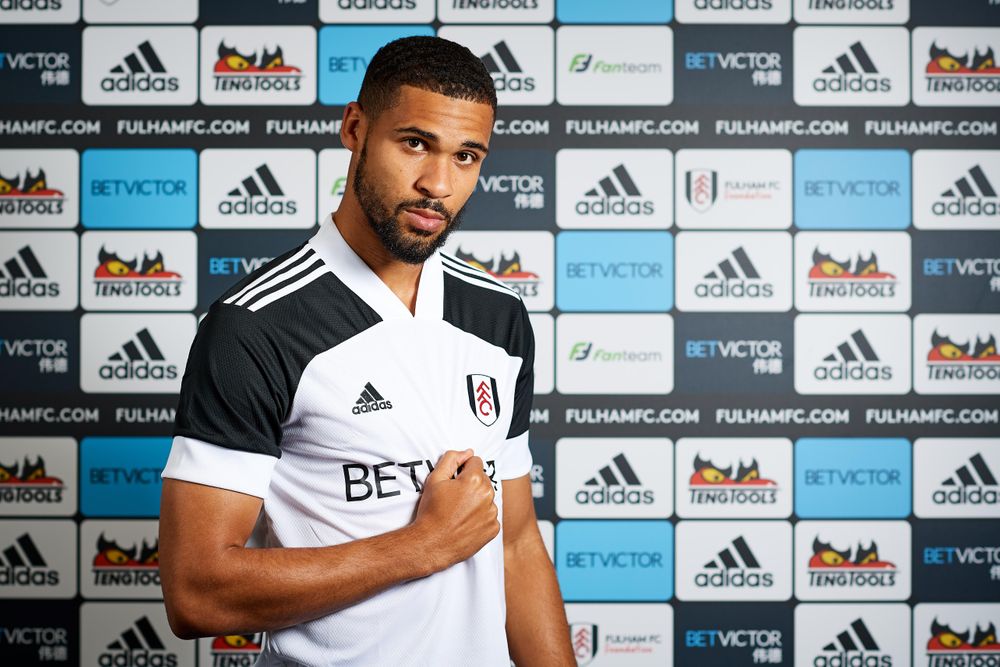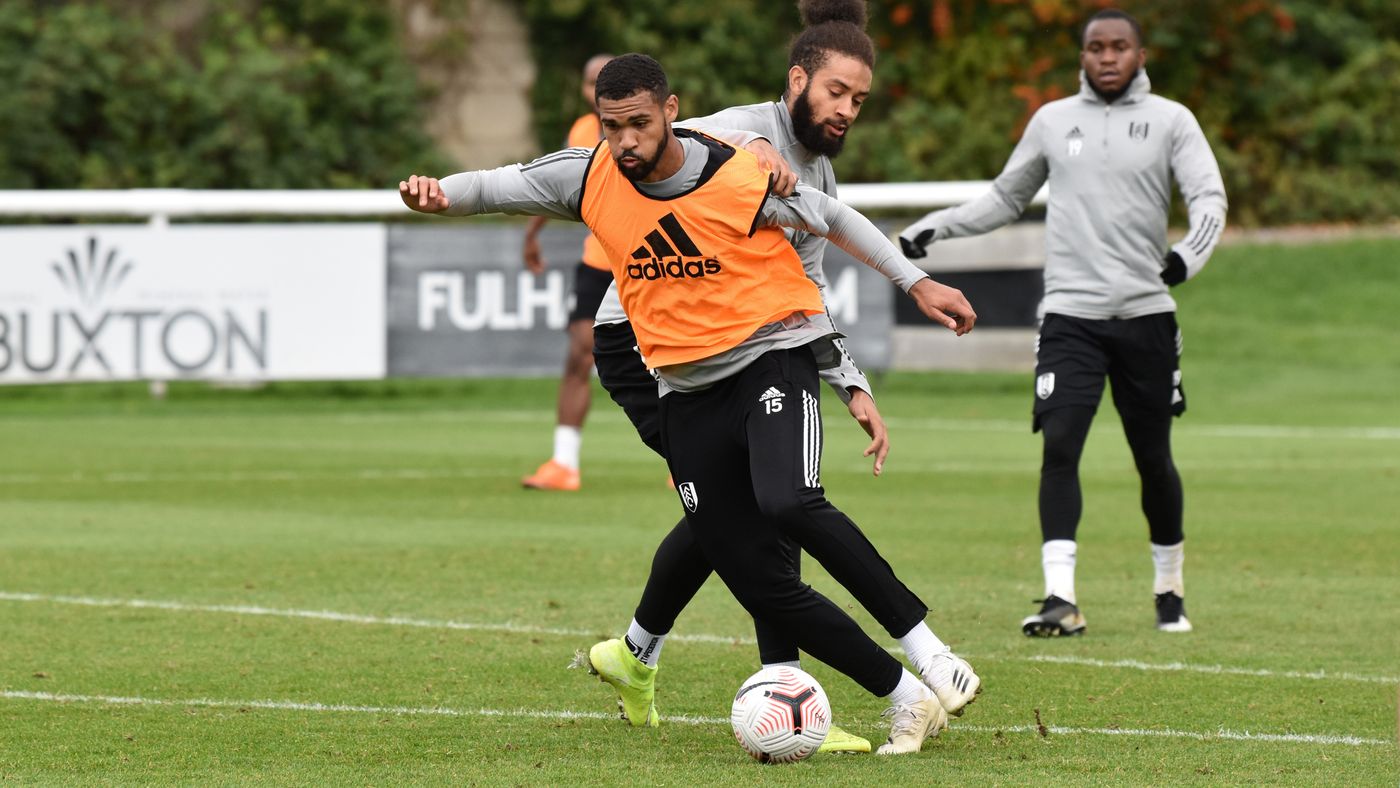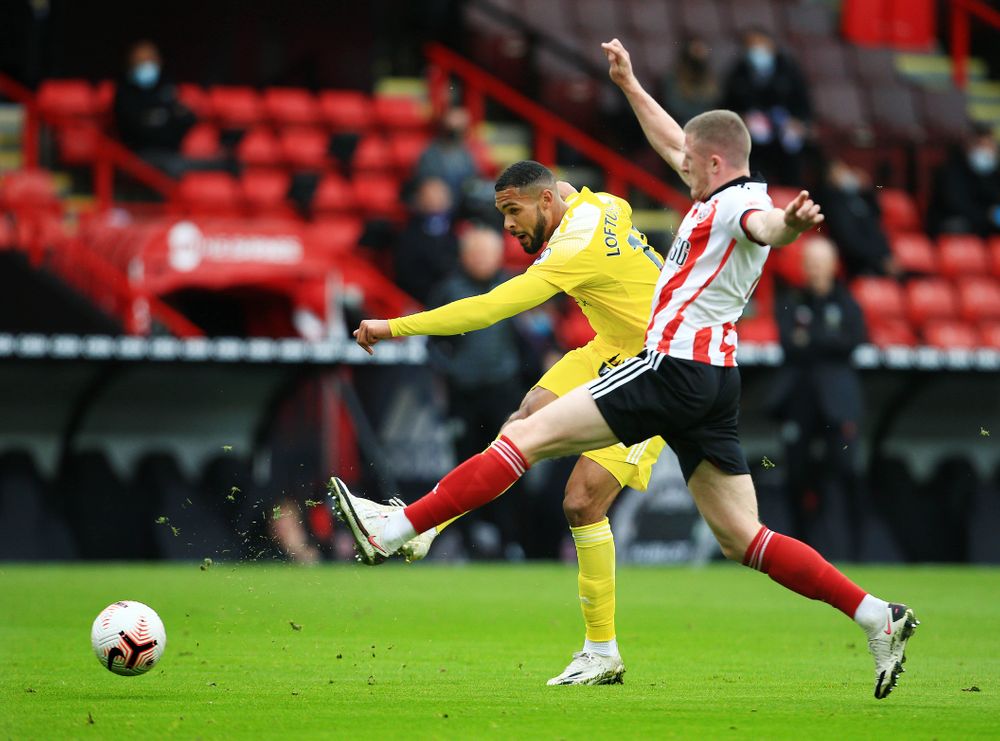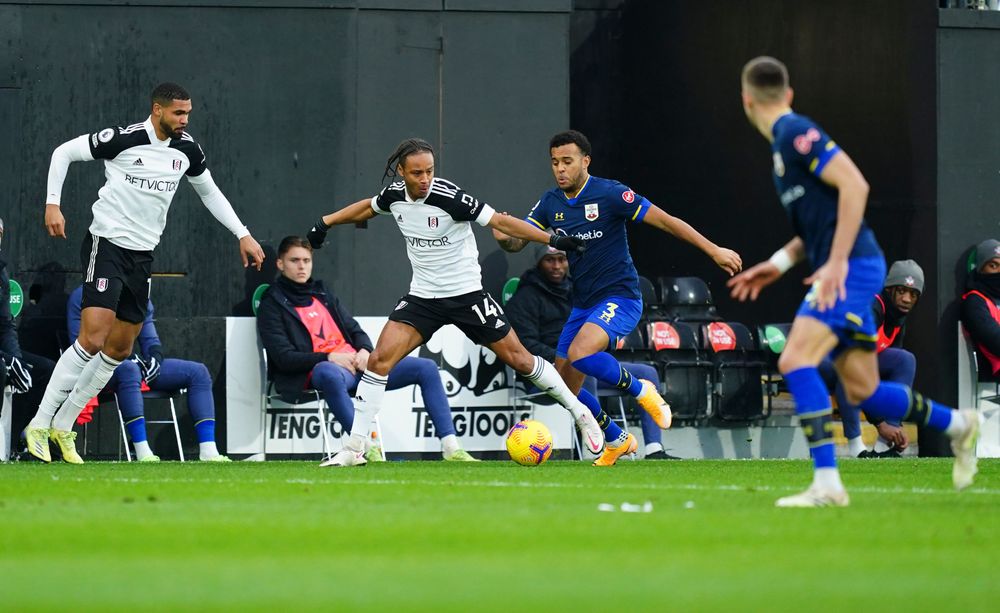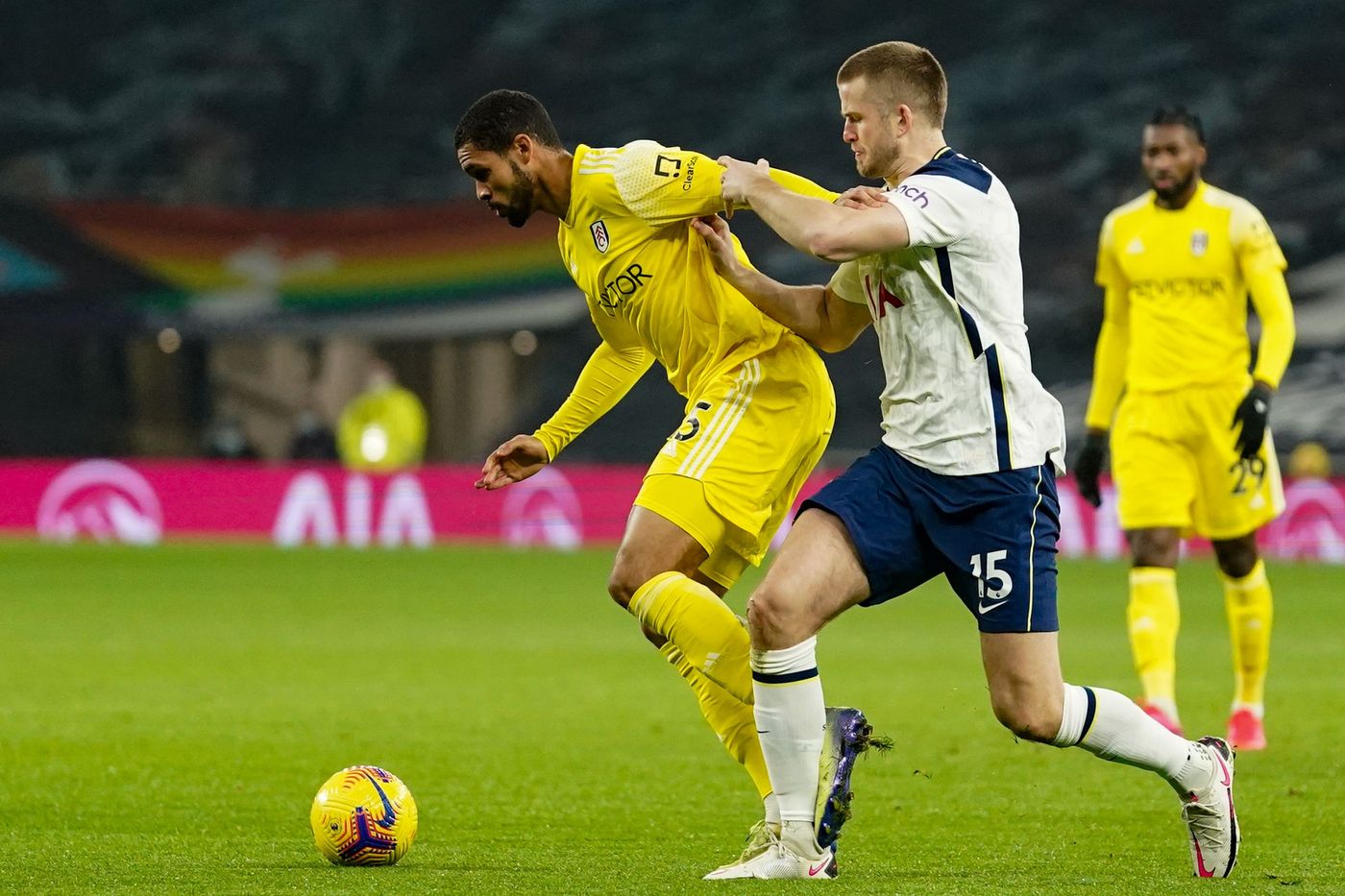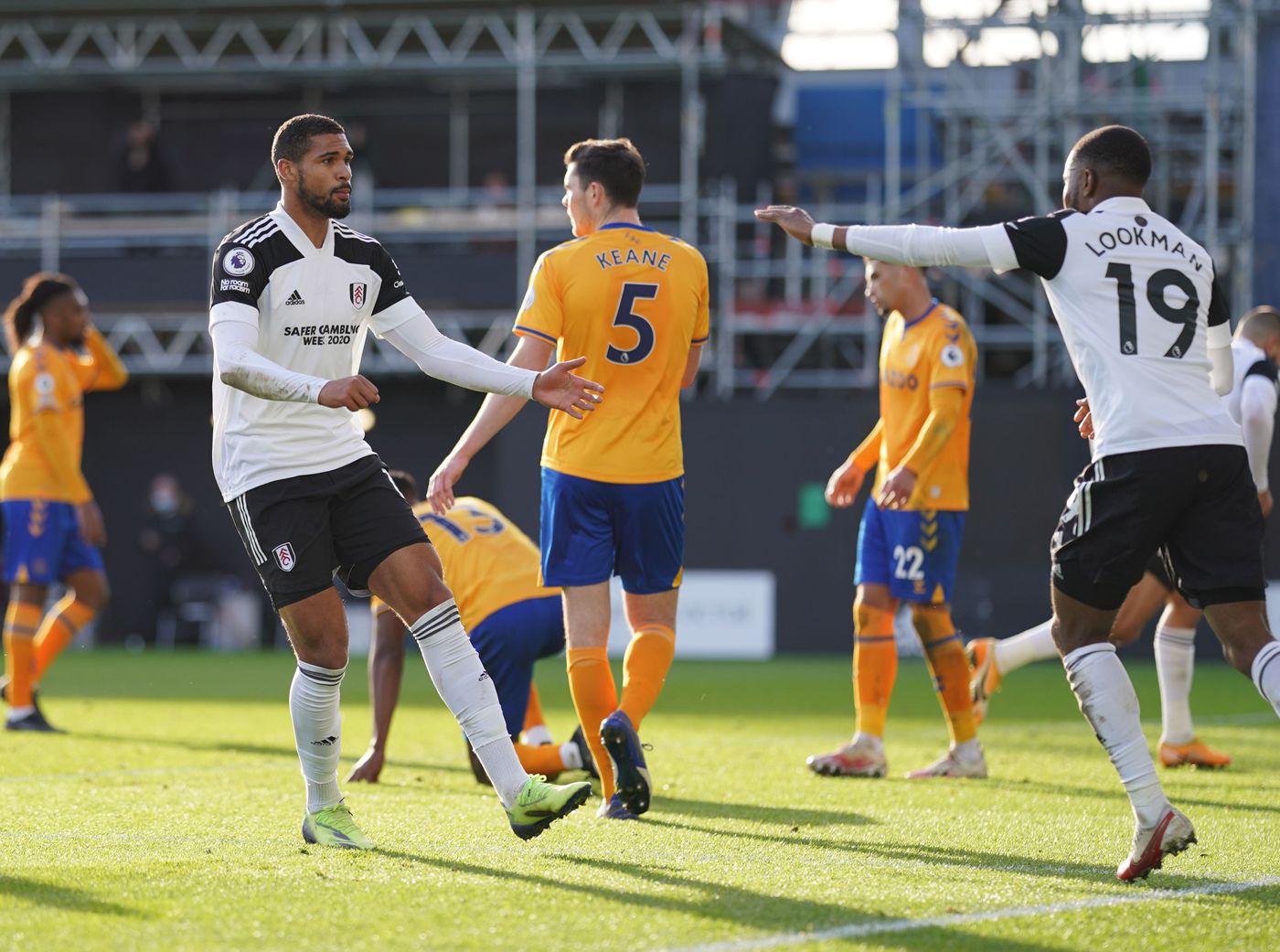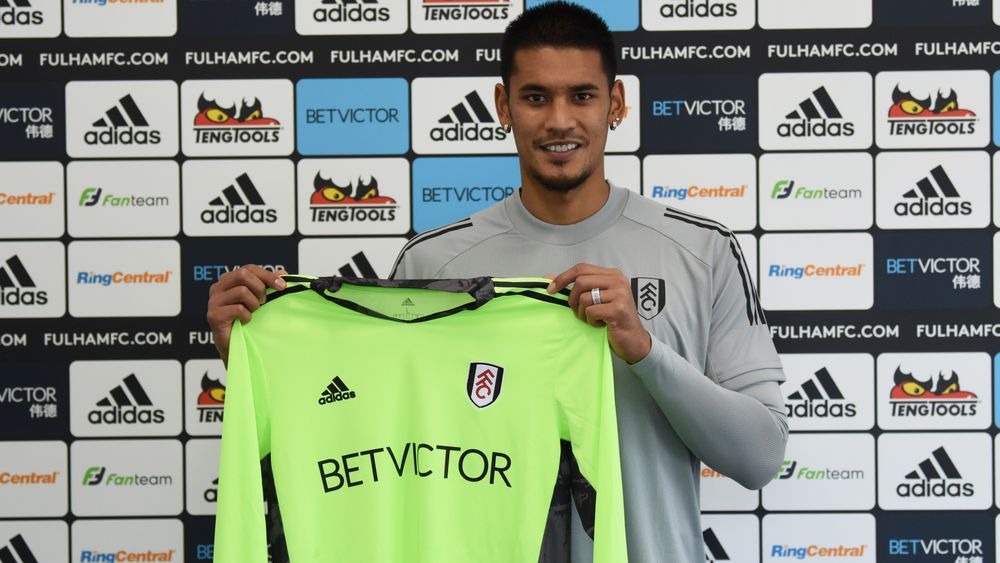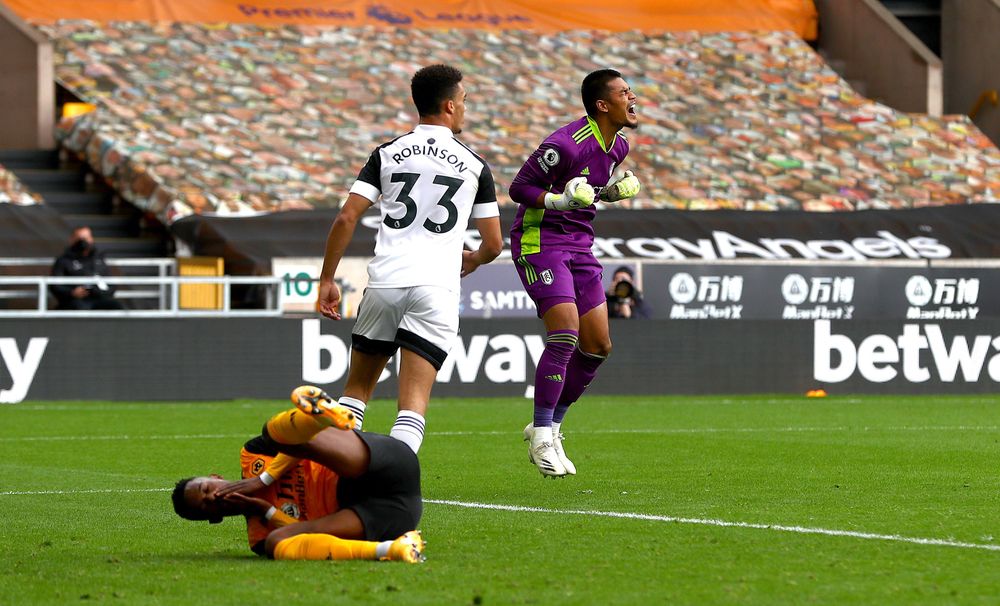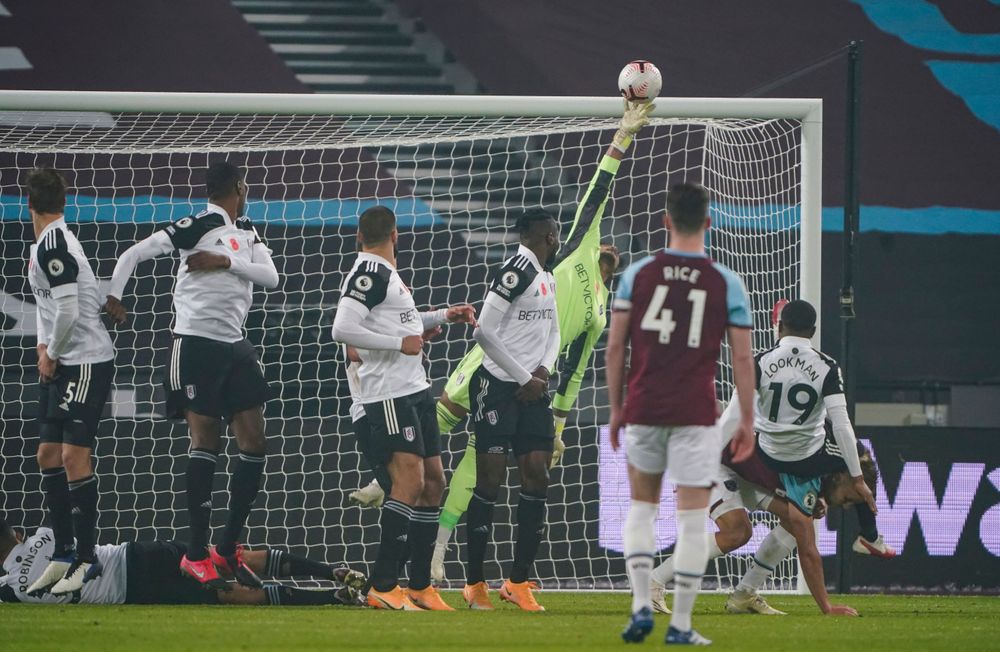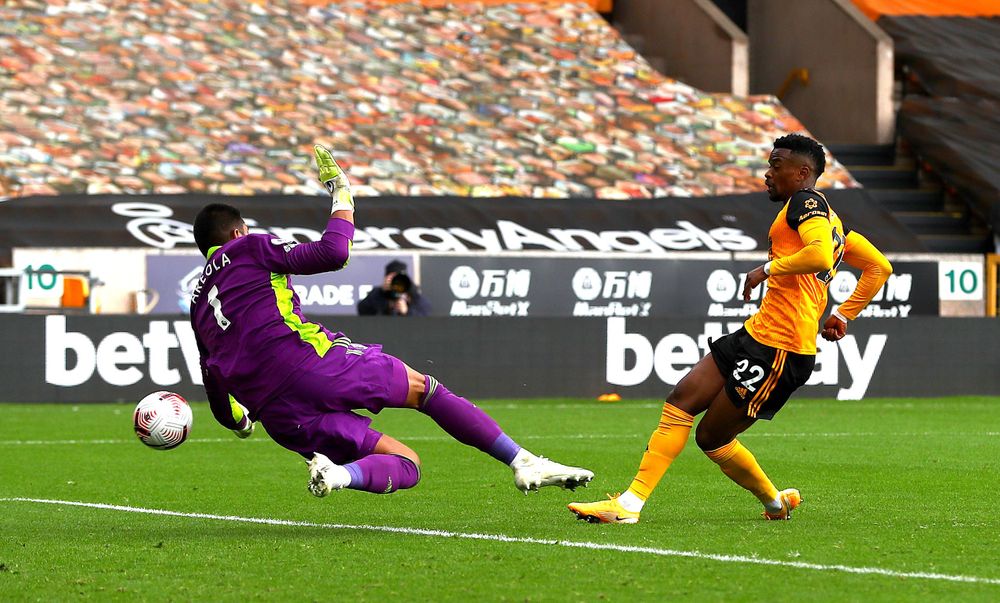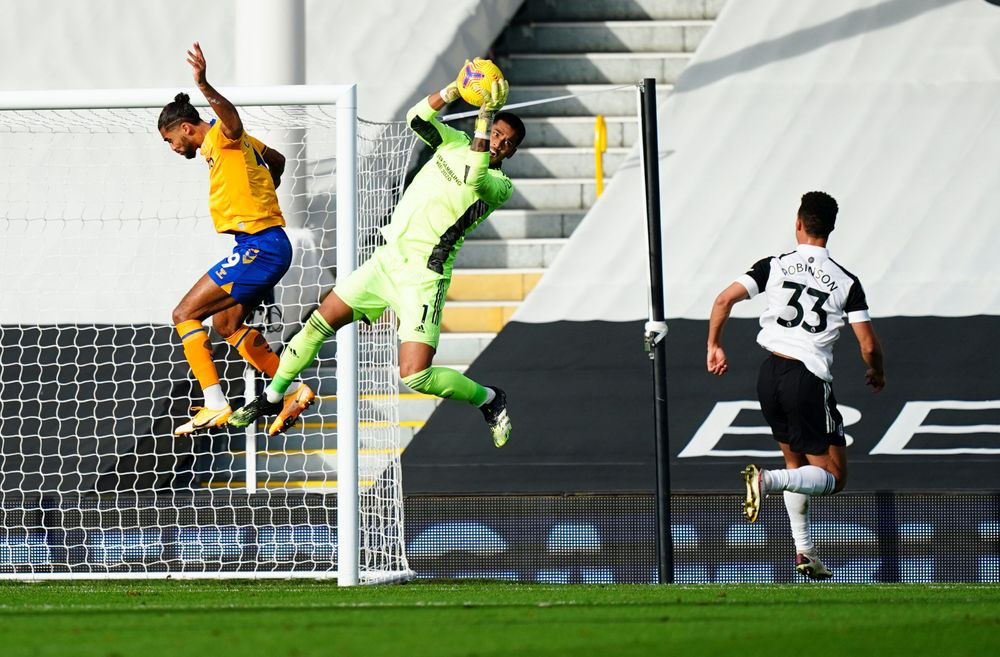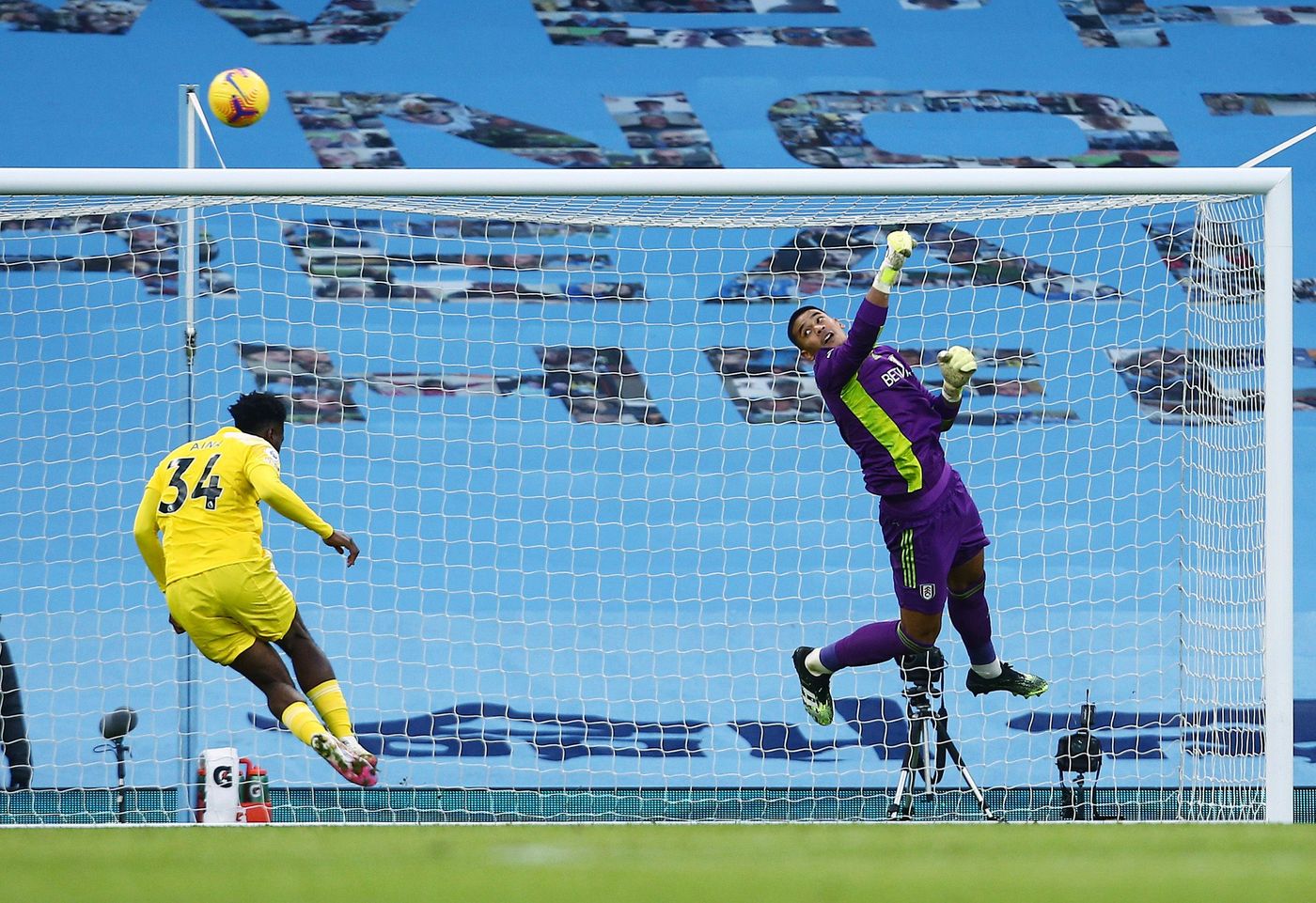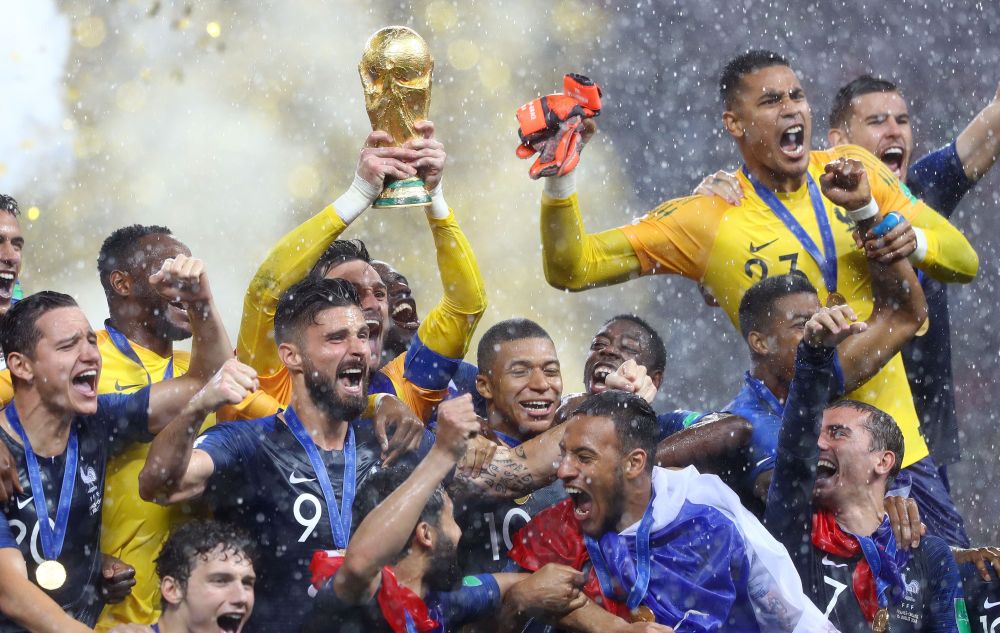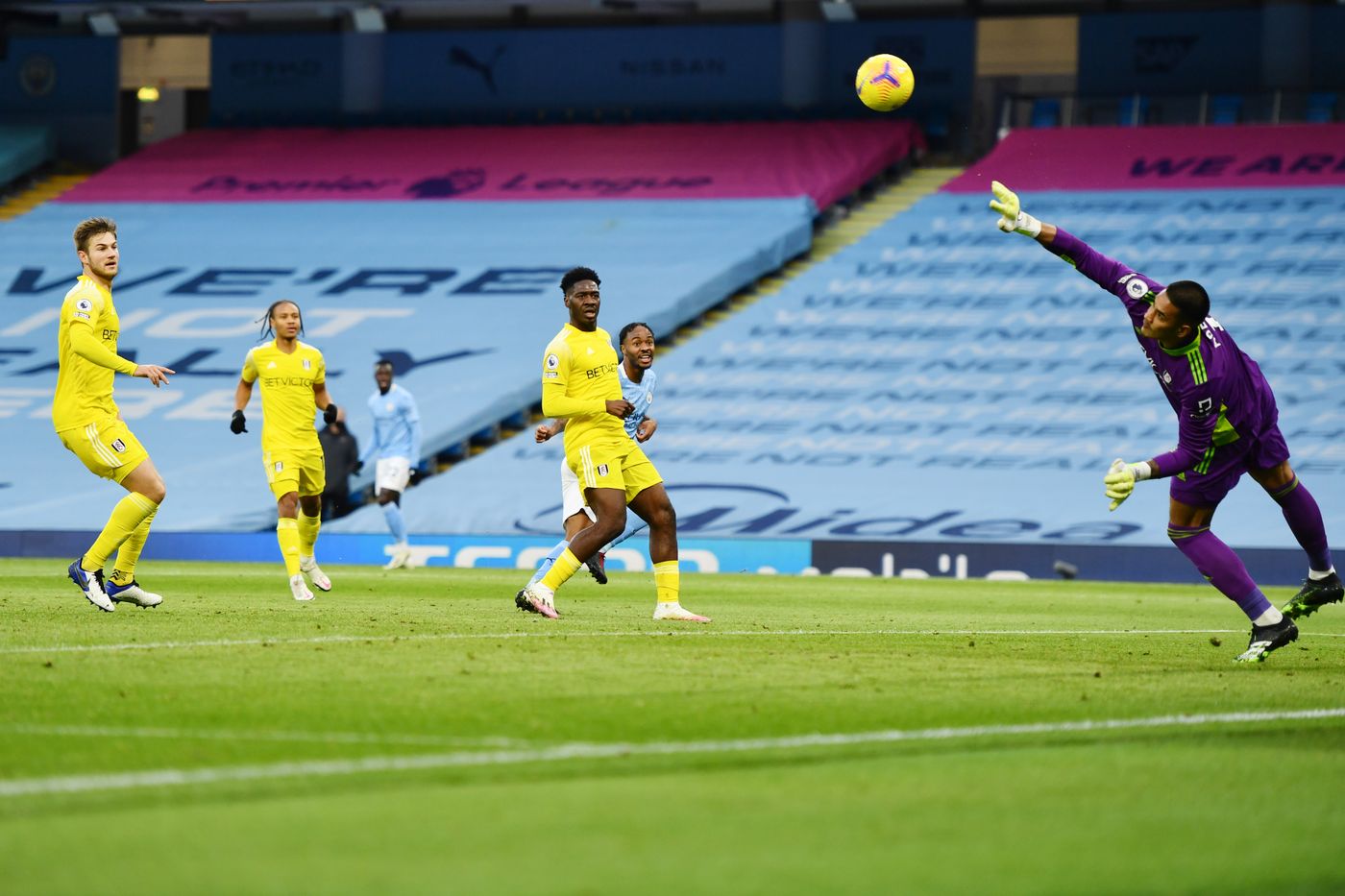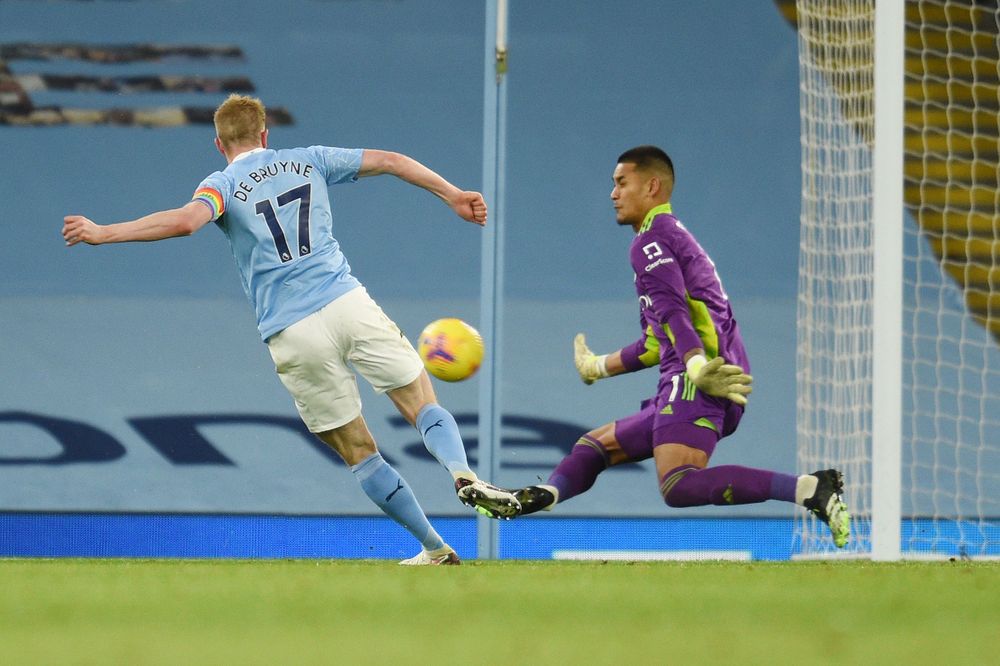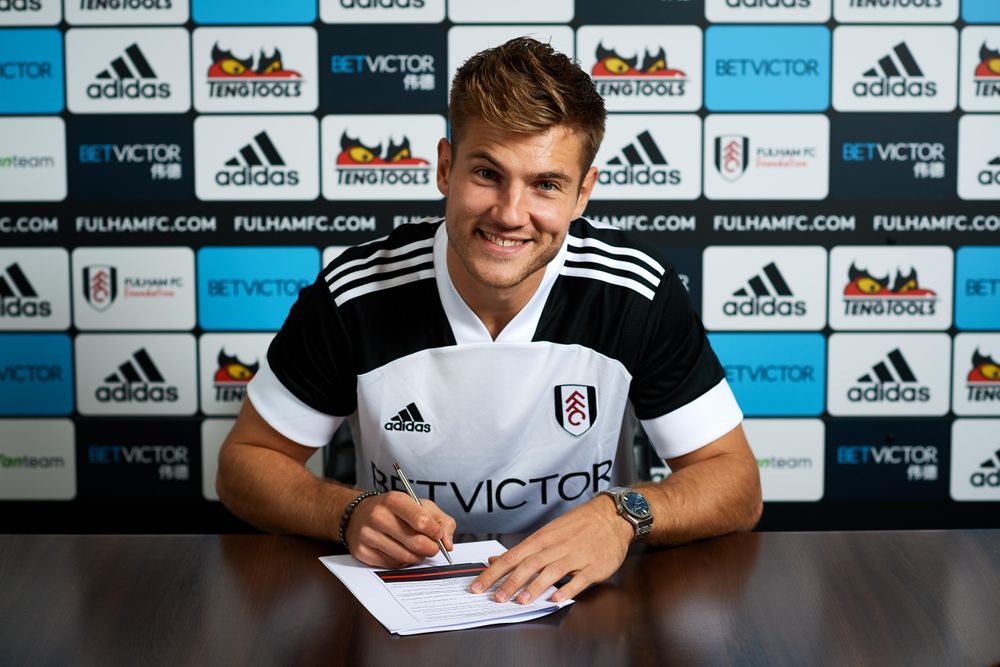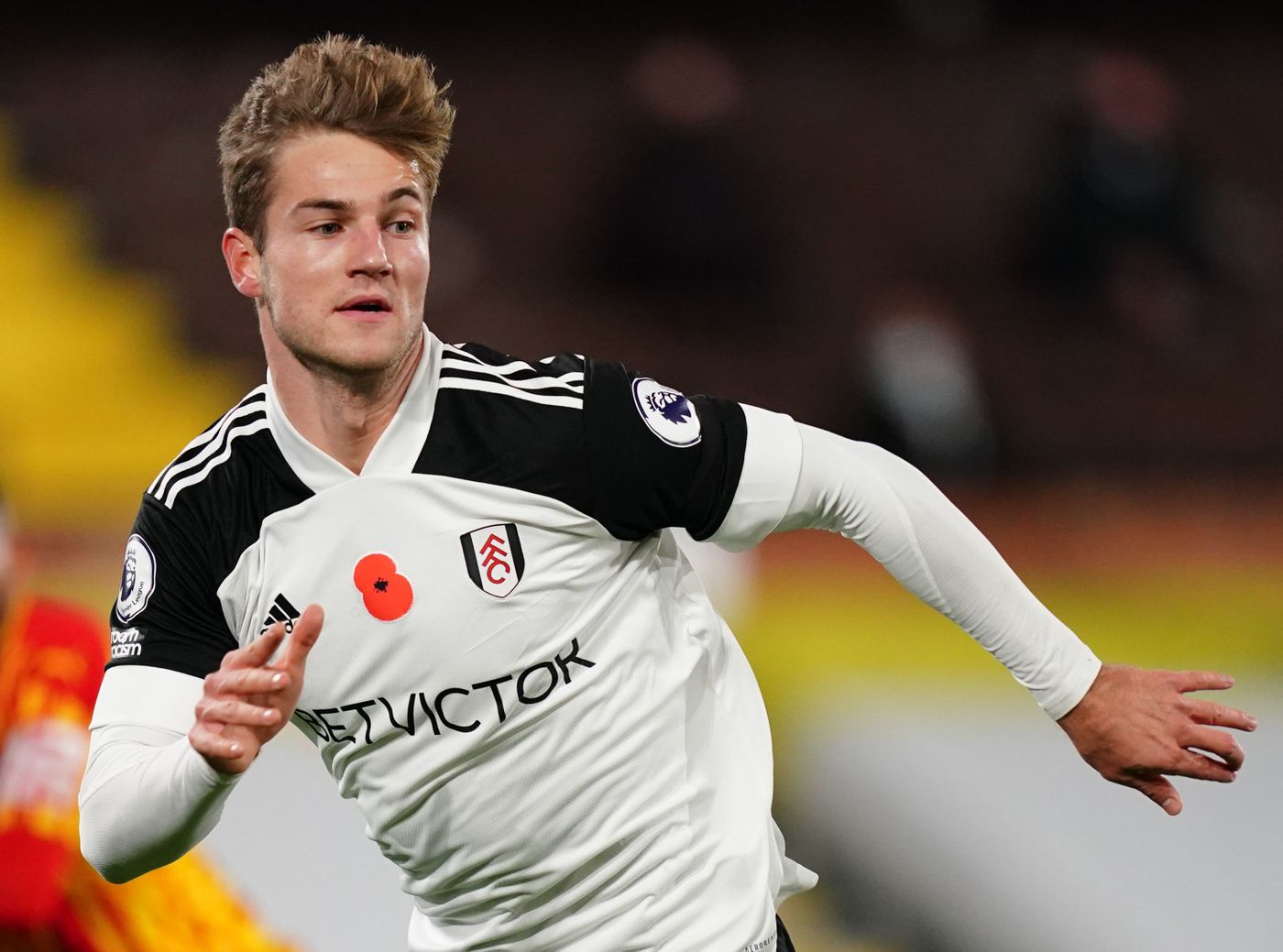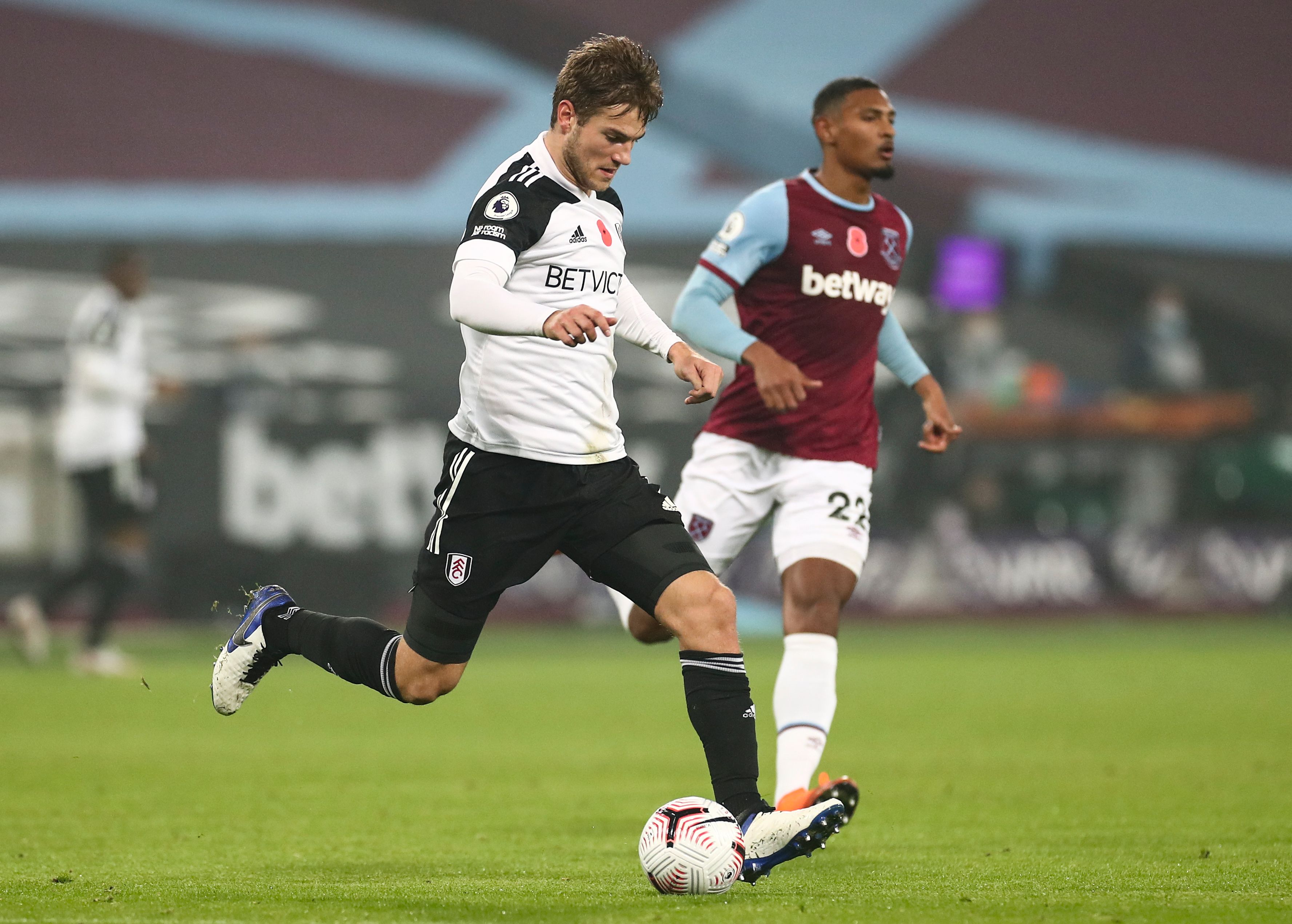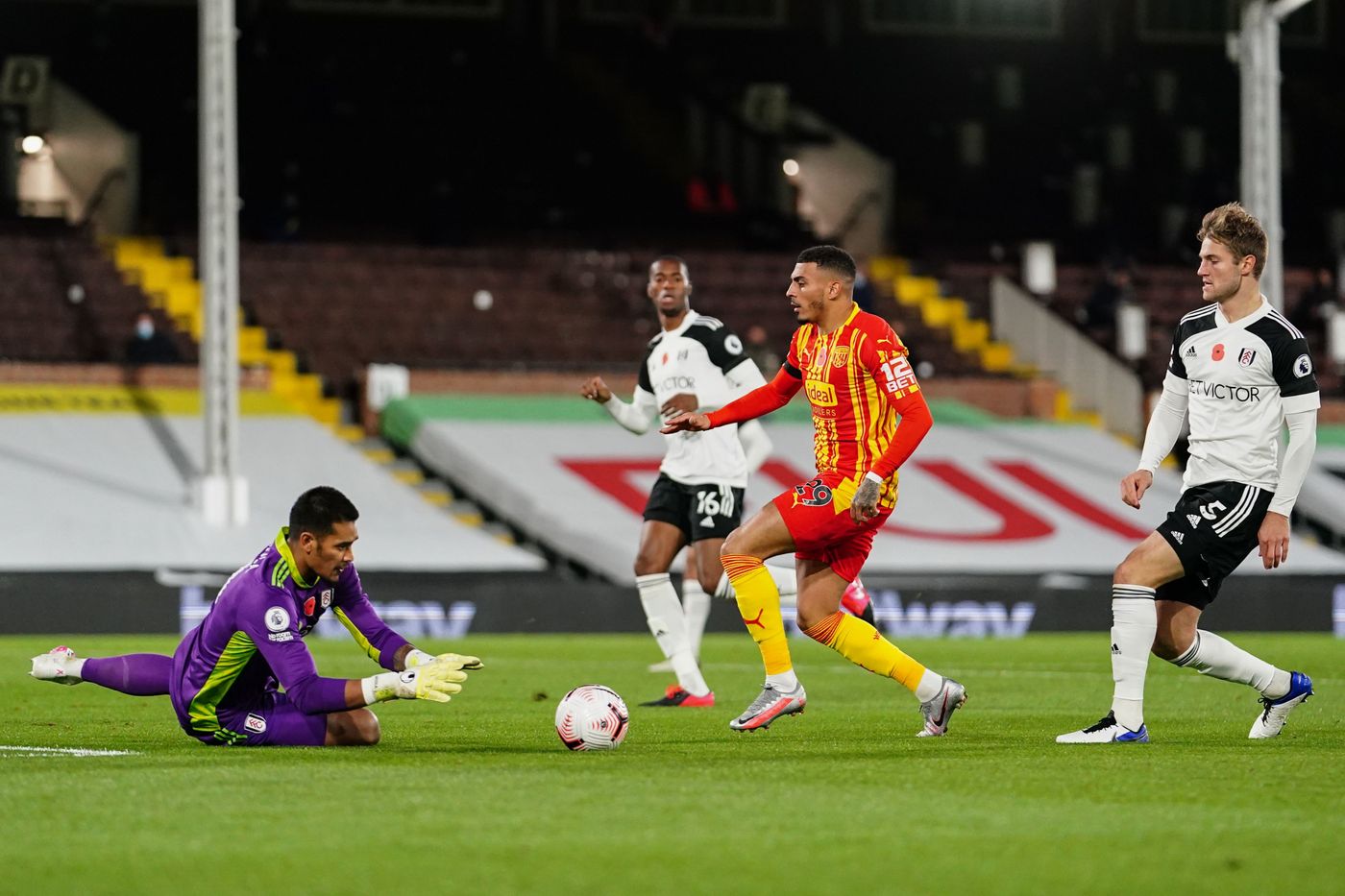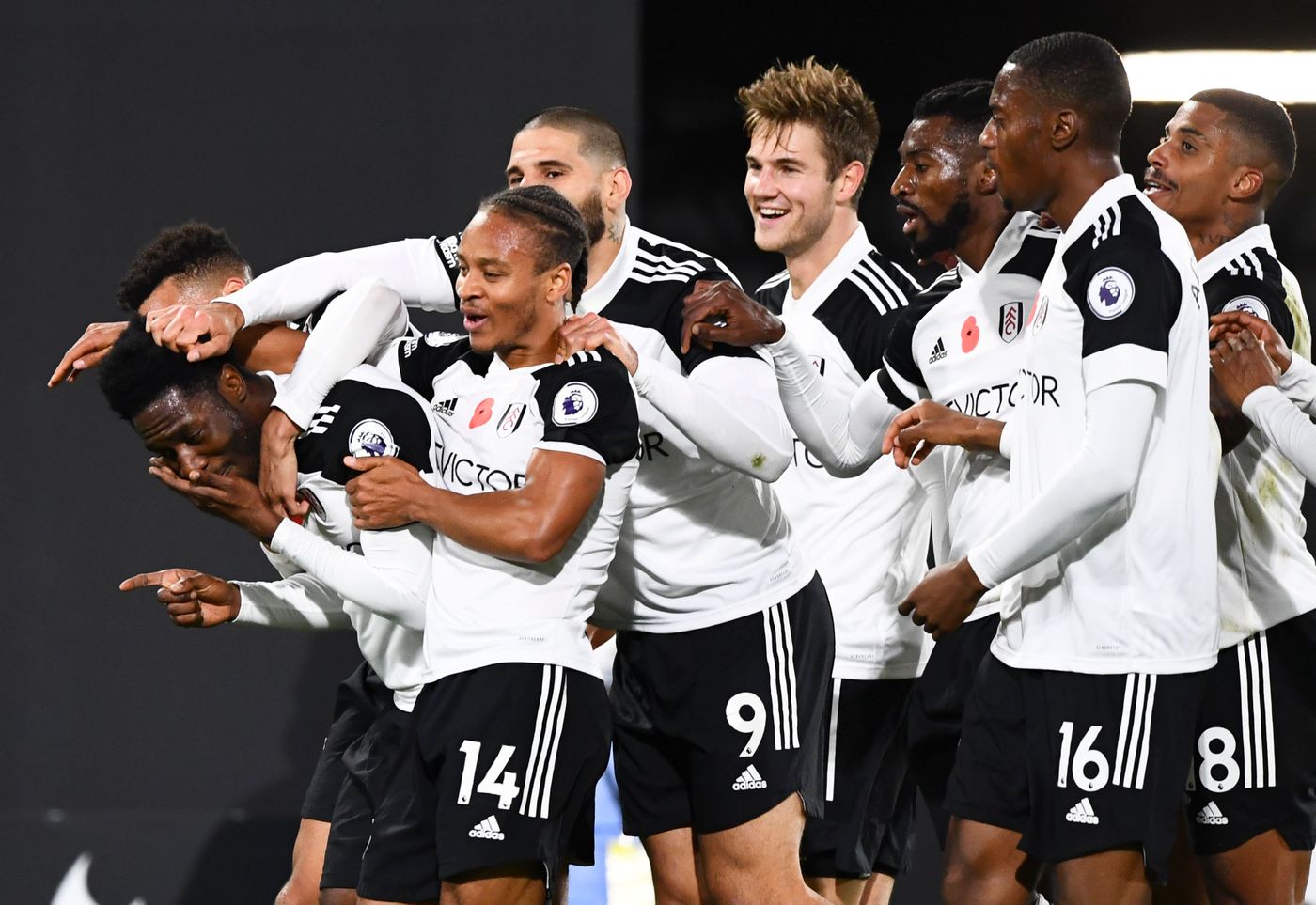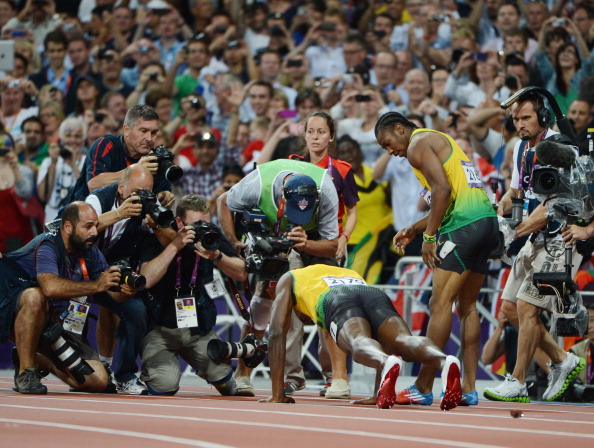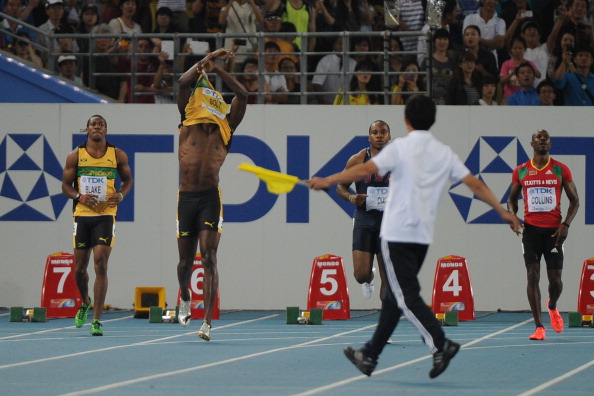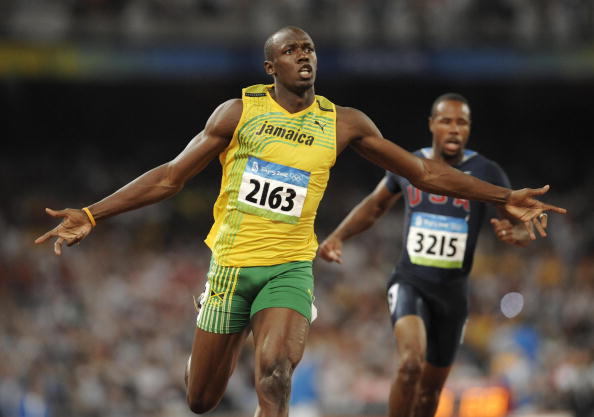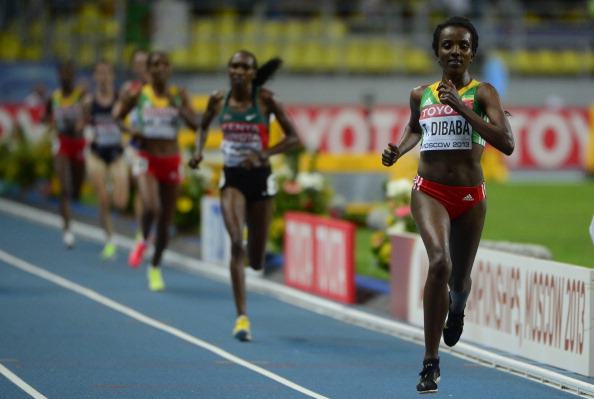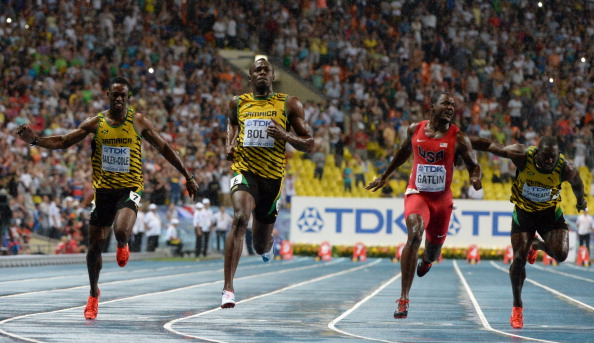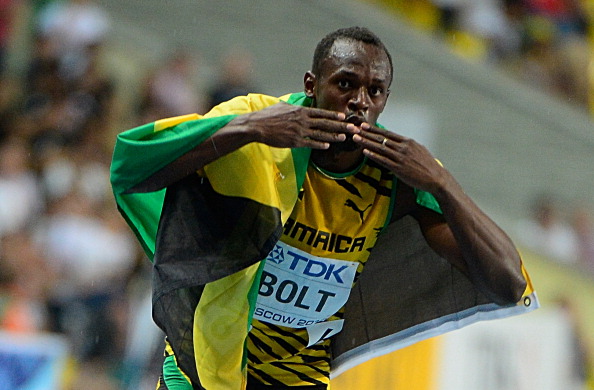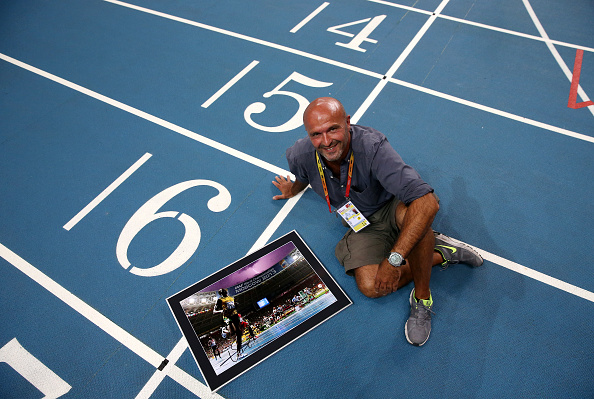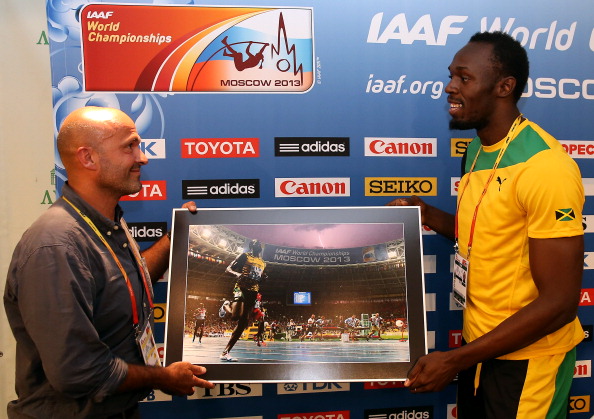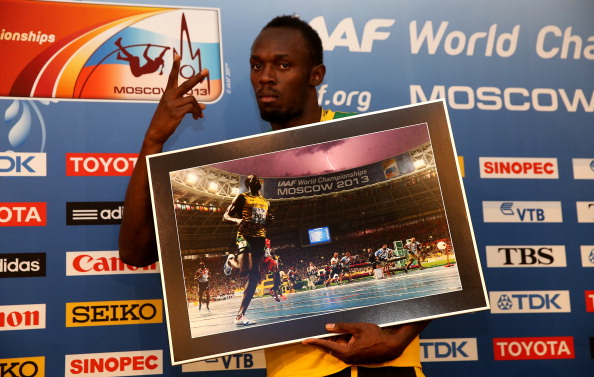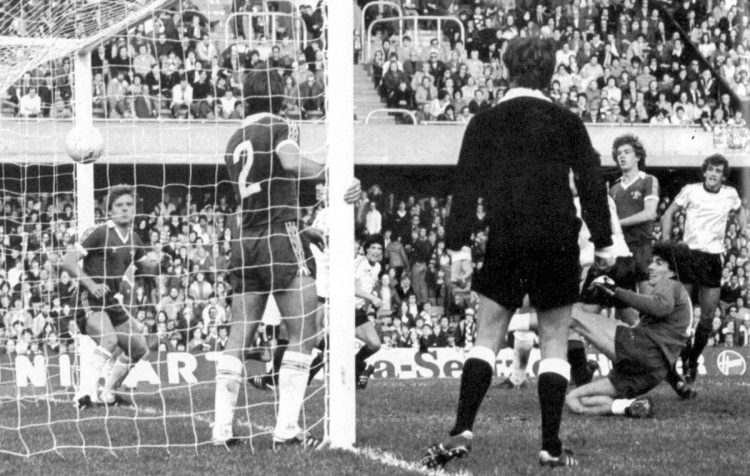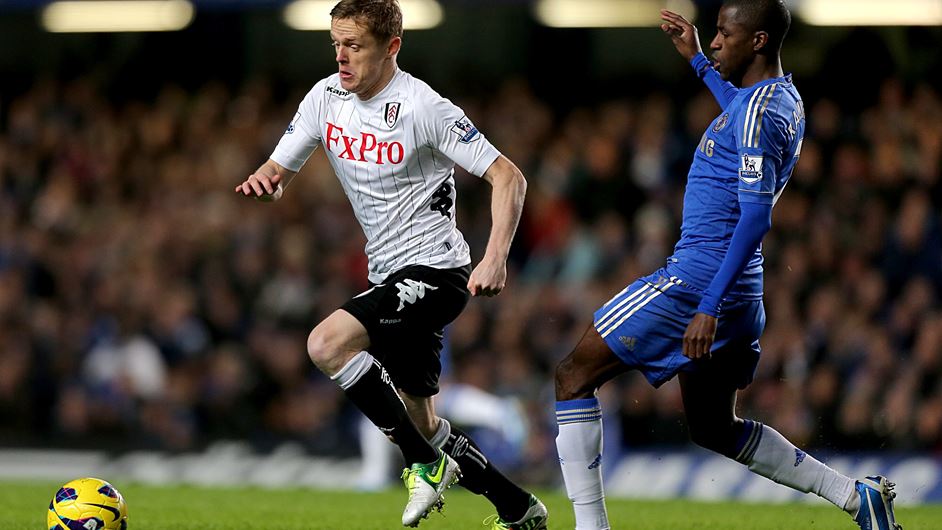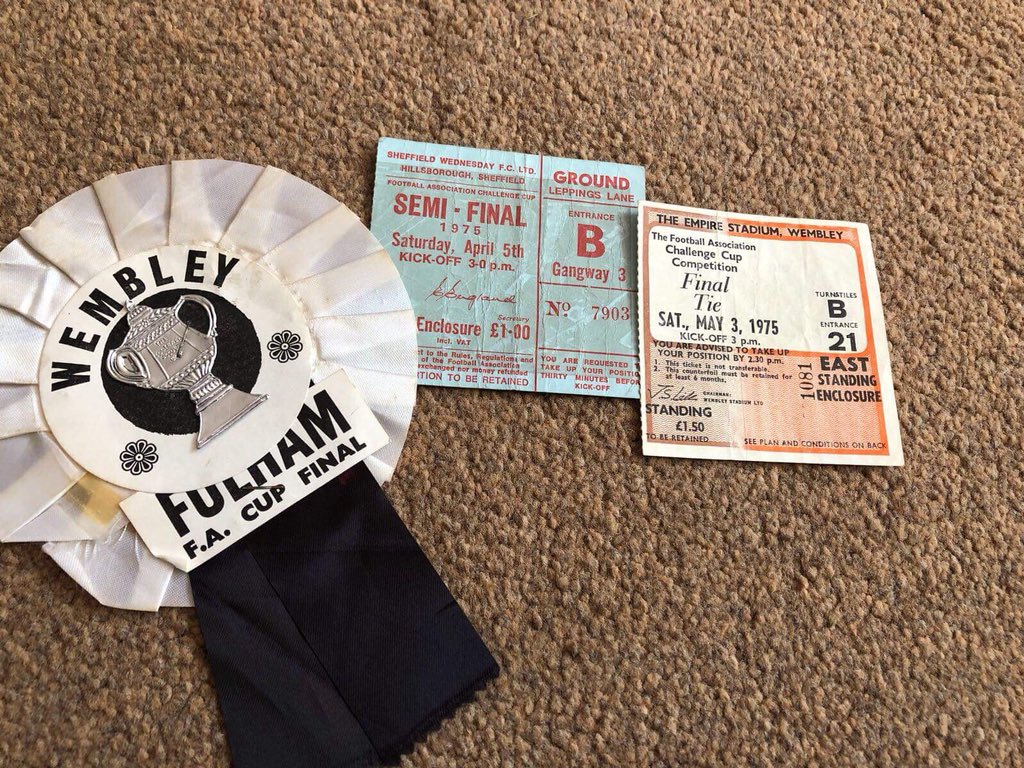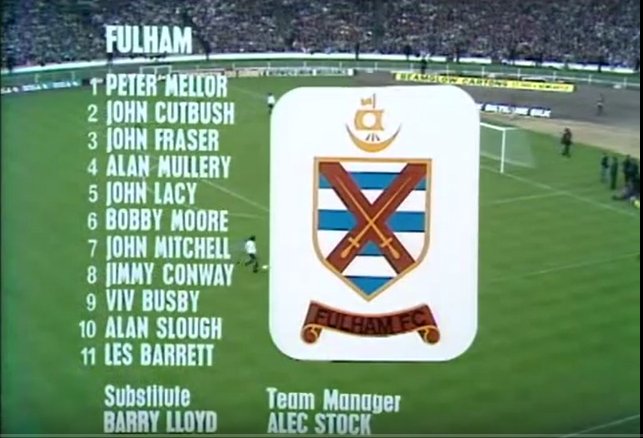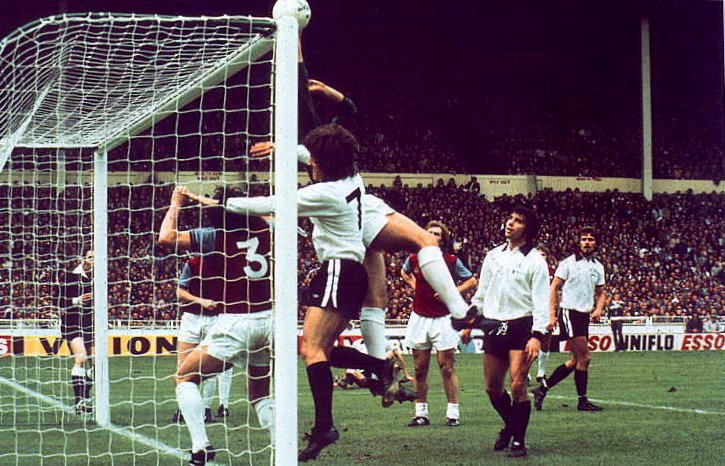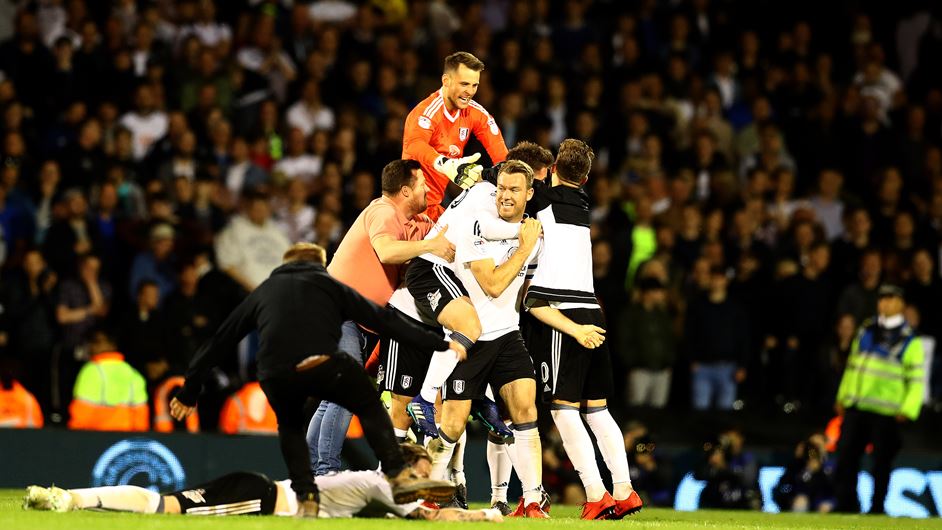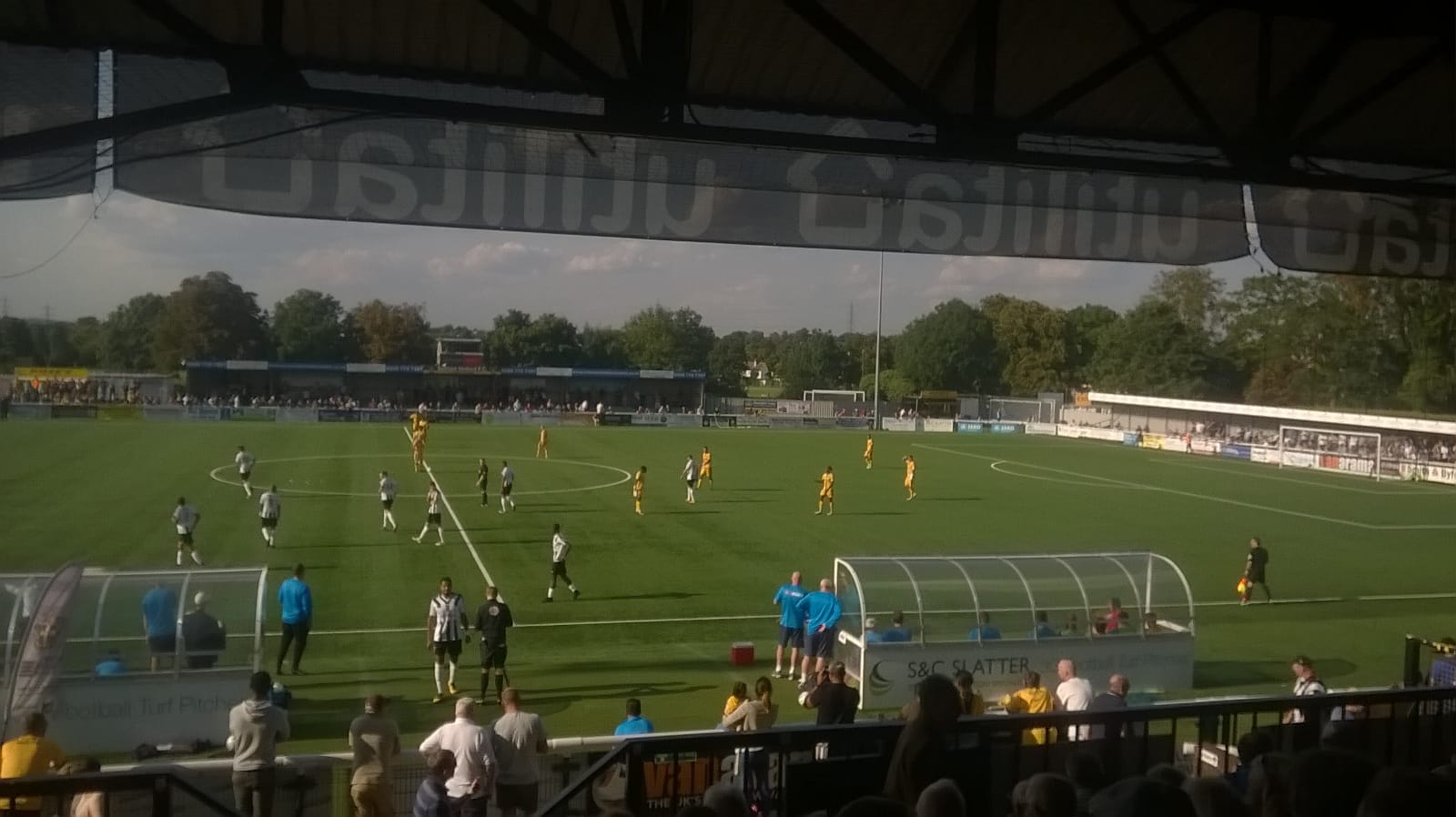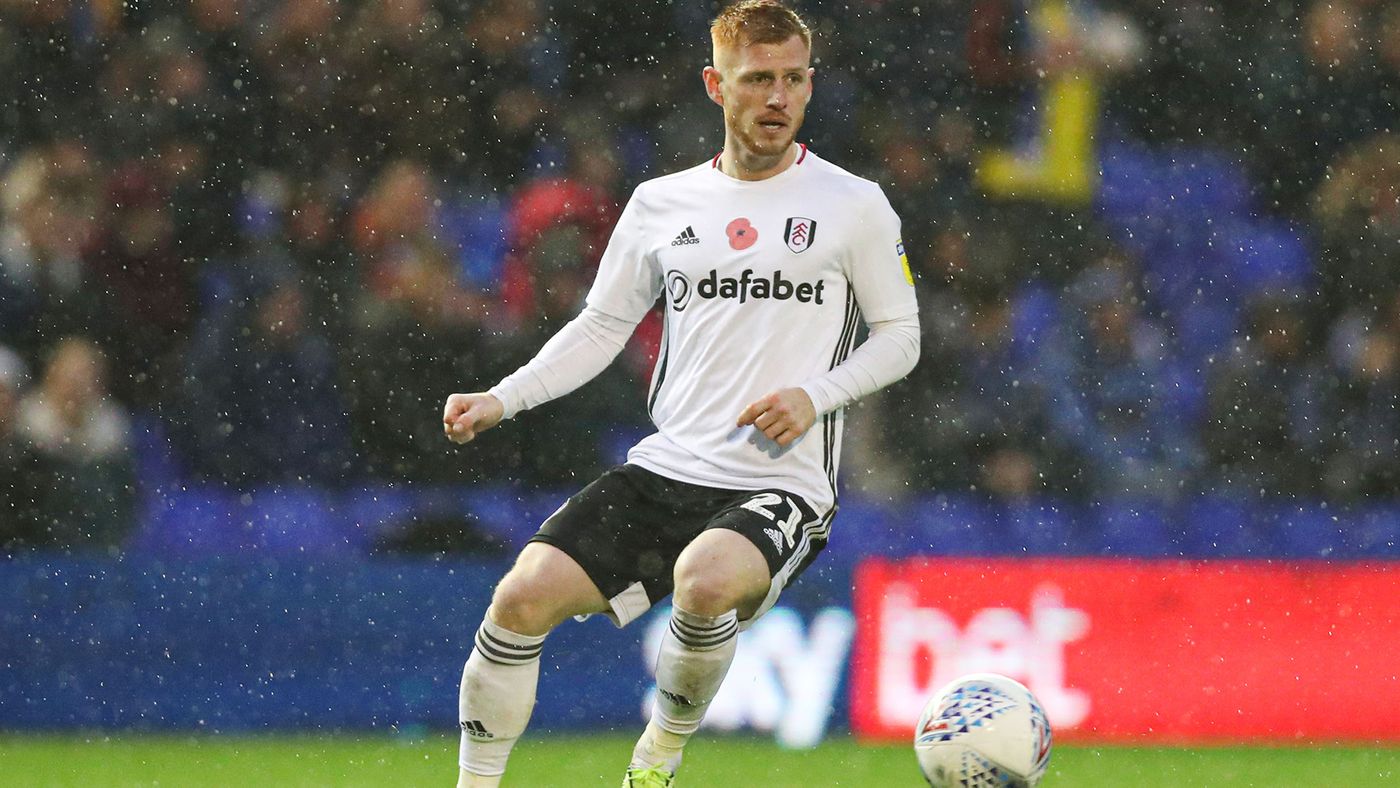
There can be few more popular signings in Fulham history than that of Harrison Reed.
The 25-year-old made his long-awaited permanent move to SW6 at the end of August after a season in which his boundless energy, fierce tackling and tidy passing game proved crucial in helping us return to the Premier League at the first time of asking.
Reed was just as keen as the Fulham faithful to see the negotiations get over the line and his focus is firmly fixed on what will undoubtedly be a challenging season ahead.
“It was something I was looking to do [sign permanently],” he told the matchday programme. “There comes a time where you need to really push your career on. It was important that I found somewhere where I was really comfortable and the ambition of the club matched mine. Fulham came along and it was the perfect match, so I’m really, really happy to become a Fulham player permanently and I’m looking forward to seeing what the future holds.
“It was made known to me that the club were looking to make it a permanent transfer after the [Play-Off] Final. I went away on holiday and it was left between the clubs to agree everything. As soon as I got the go-ahead, I was straight to the training ground to get it signed.”
The adulation of the fans was clear to see, with a mountain of social media messages begging the midfielder to put pen to paper. Was it tempting to reply?
“Yeah, it is sometimes,” he admitted. “They want answers and obviously don’t know the ins and outs of what goes on behind the scenes. It is tempting to offer a little bit of hope to the fans and ‘like’ this and ‘like’ that and give them an insight about what is going on because they’re obviously left in the dark until everything’s done and then it’s announced, whereas I know what’s going on day by day and how close we are. I managed to hold off and hopefully, for the fans, it was worth the wait.”
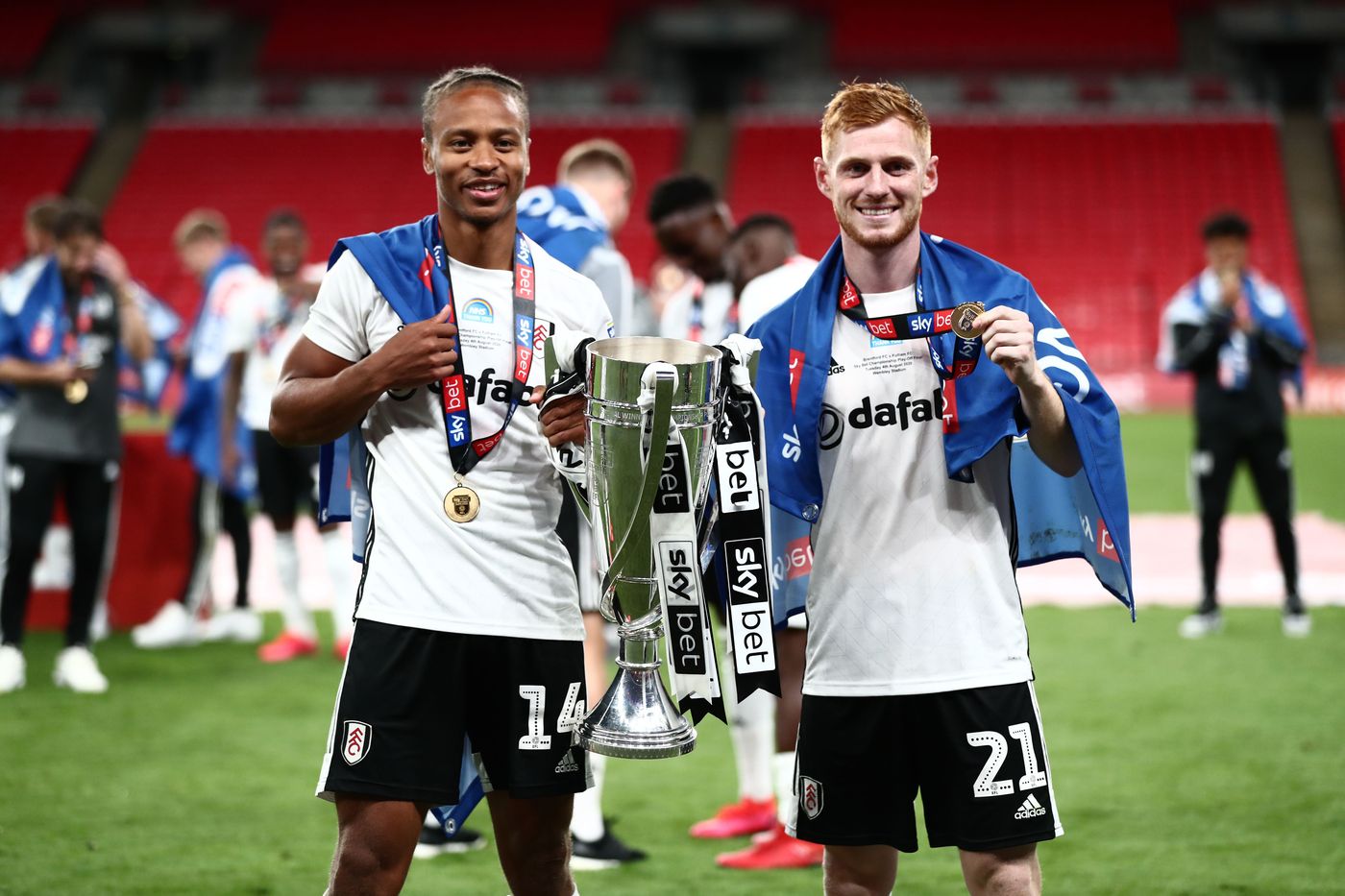
His Fulham teammates didn’t need to persuade him to join.
Reed’s performances secured him third place in the Club’s 2019/20 Player of the Season fans’ vote and supporters have made comparisons with N’Golo Kanté, someone the Southampton academy graduate will hopefully pit his wits against when Frank Lampard’s men travel to Craven Cottage in mid-January.
“Of course, it’s great,” he said of the recognition. “I just try and give my best for the team and help us get the three points. To come away from that and see that the fans are pleased with my performances, it’s a really good feeling.”
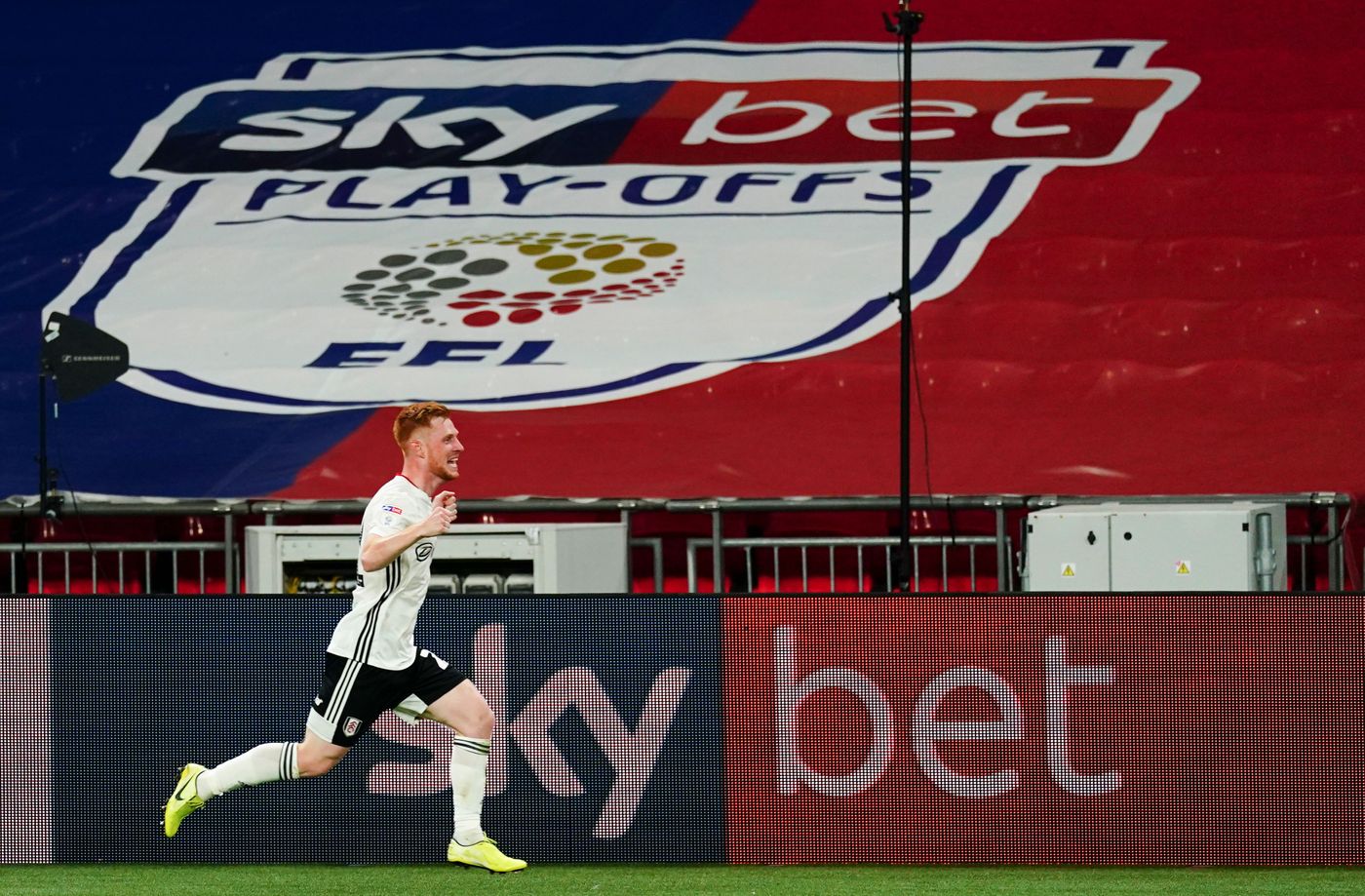
Reed’s commitment saw the fans warm to him quickly, but calf problems picked up in home clashes against Queens Park Rangers and Reading meant he was sidelined for nearly all the fixtures over the winter. Our new signing was keen to prove his worth on his return and said that the group’s strong work ethic contributed to the impressive performances in the home stretch.
“I was pretty much fully fit going into lockdown. I was nearly there. It was then down to me to come back after lockdown to show the Club, the fans and the Manager why they should keep me there.
“The Club were great to be honest [after the season was put on hold]. They asked for all the equipment that we needed and they got that delivered to our doors, so I was able to do everything.
“I was doing my gym work at home, I had running sessions to do every day. We had a little bit of competition between the group on an app as well, which was good. You can see, on the app that we had, the runs everyone was doing and the intensity of the runs and everything like that. It was top drawer.
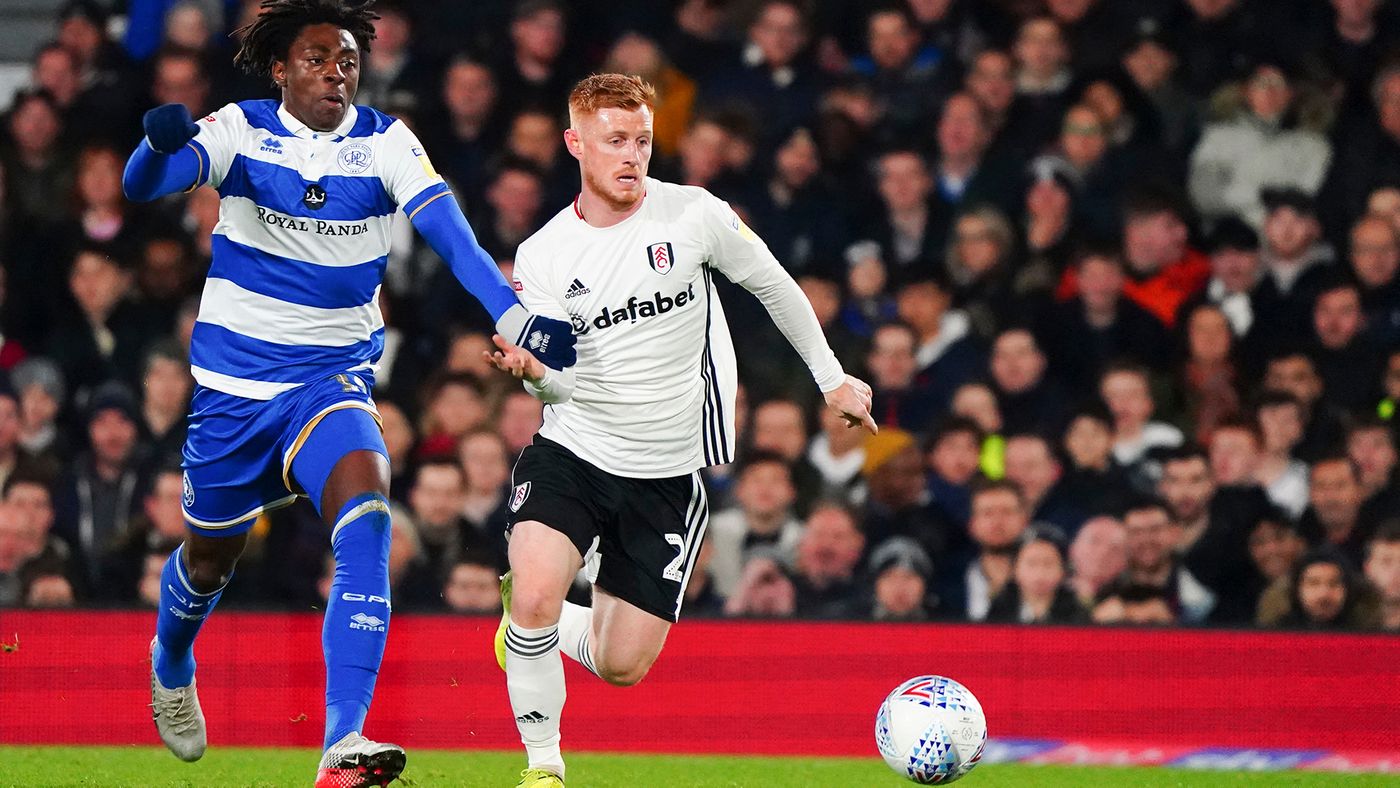
“The Manager really made sure that we were aware of the end goal of promotion and what it would take to get there and I feel like everyone bought into it.
“It was good after lockdown to have the games come thick and fast because we’d all missed it massively. The outcome of the season couldn’t have been much better for us.”
The nail-biting win over Brentford was the culmination of that effort and, speaking to FFCtv after his transfer was confirmed, Reed reflected on an unforgettable day.
“Unbelievable. I don’t think it’s really sunk in yet. I was absolutely exhausted at the end of it and I think the celebrations tipped me over the edge actually. The emotion of the day, from waking up [and] seeing Wembley out of the hotel window to going for a coffee; you really felt the pressure building. Then to walk out into Wembley – it was my first time playing there – was an unbelievable experience. When Joe scored the first goal, let alone the second one and then the final whistle…the emotions and the elation was just amazing.”
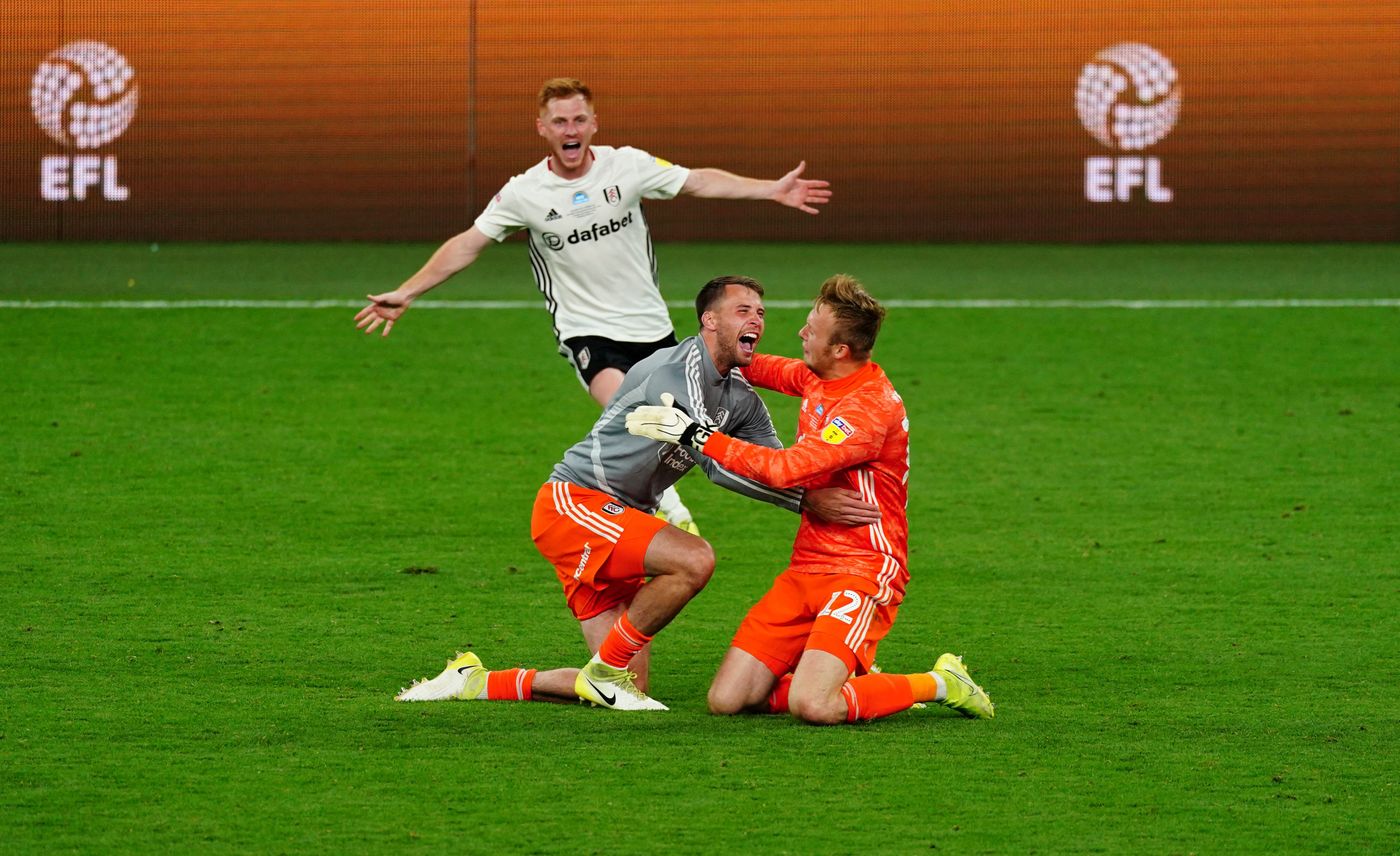
However, the evening could have been remembered for very different reasons when Reed’s first-half challenge on Christian Nørgaard led to some wondering whether Fulham deserved to go down to 10 men. Was his heart in his mouth before the yellow card was brandished?
“I’ll be honest, it was a little bit,” Reed told the programme. “I obviously overstretched for the ball. There wasn’t any intent to hurt the player, but looking back, I’m watching it with my head in my hands really because it could have been a red card, just because I was overstretching and my studs were up.
“My eyes were completely focused on the ball and the player happened to come across. I think I did get a little touch on it to be honest, but the ref was an experienced ref and I think that helped me out on that occasion. I did look up and when I heard the players, I thought ‘oh no, here we go’.”
Despite the change in divisions, one thing that will remain the same is the absence of fans in attendance. Reed admits the change was strange initially.
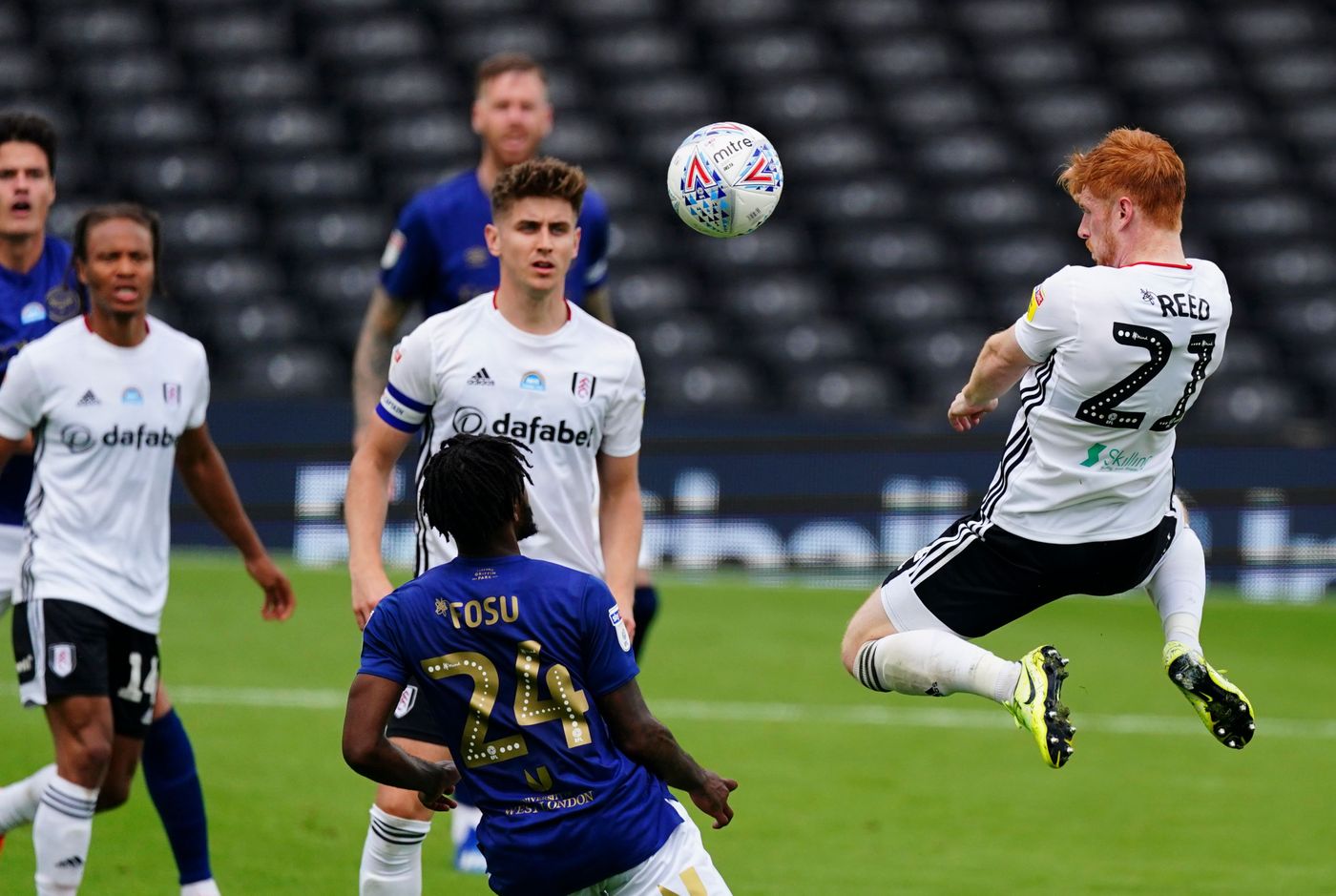
“In the first couple of games, it was quite hard to get used to. You obviously have that extra buzz when the fans are there and you always have that extra bit of energy, but I felt, as a team, we managed that situation really well and really performed. It was obviously very, very disappointing not to have the fans alongside us on the journey we went on, especially ending at Wembley and getting the win. It would have been a special, special day for the fans and for us to share that with them. We couldn’t use [the lack of fans] as an excuse, we didn’t want to use it as an excuse and we had to get on with it and perform, and we did.”
Reed made 17 Premier League appearances for Southampton, the last of which came in April 2017. The prospect of going toe to toe with some of the world’s best players again is one he relishes, but he knows he must keep improving.
“It was a long time ago, I can’t lie,” he laughs. “I want to improve every day. I know that’s a cliché, but I really do. With the Premier League, you see the intensity of it, the physicality of it, the quality of the players. It goes up another level and I think each and every one of us needs to do that to have a successful season.”
The team haven’t had long to prepare for the new Premier League season and our last experience in the top flight was one to forget. How does he see the mood in the camp going into this campaign?
“The mood around the camp’s really positive. It’s one of excitement, that we’re not coming into this league to just survive. We want to take this league head on and see where that takes us.
“I think that’s a really good mentality. It’s the mentality of the Manager and that’s something that rubs off on all of the players as well, so we’re really looking forward to it. We know it’s a big challenge, but that’s what we worked so hard for last season and we’re going to be ready for it.”


